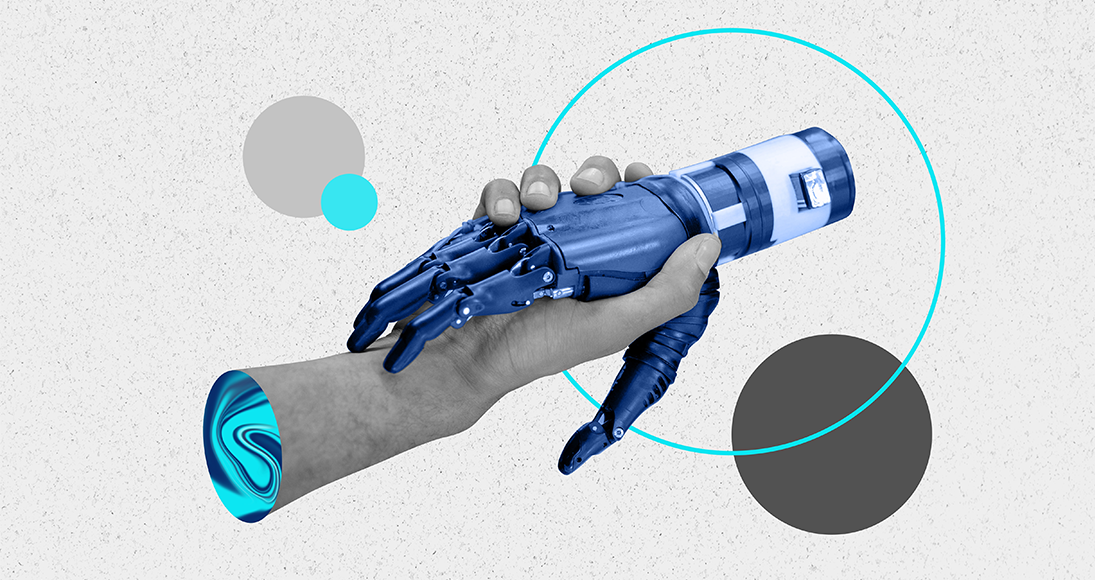HOW AI IS CHANGING THE PROGRAMMER’S GAME
A powerful ally for the future of coding.
2024
In the world of coding, where deadlines are tight, caffeine flows freely, and bugs lurk in the shadows, AI has quietly stepped in to lend a helping hand. Today, developers are no longer just writing code. Instead, they’re collaborating with AI to work smarter and not harder. From slinging ASP.NET Core code or wrangling pipelines in Azure DevOps, AI is right there with you, making your life just a bit easier.
Let’s dive into how AI is shaking up the way we write, test, and ship code.
AI-Powered Code: Less Typing, More Doing
We all know the feeling: you're knee-deep in a project, the caffeine's kicking in, and suddenly you're stuck writing the same old boilerplate code for the umpteenth time. That’s where tools like GitHub Copilot and Visual Studio IntelliCode step in. These AI-powered assistants act like a coding buddy that helps write half your code, letting you stay in the flow, without having to type out every tedious line. Need a controller for your ASP.NET Core project? It's done. Writing yet another LINQ query? AI’s got you covered. It’s like having an intern, but one who knows exactly what they’re doing. More than just saving time, these tools help prevent bugs from slipping through early on. Whether it’s flagging an incorrect API call or pointing out a problem with dependency injection, AI ensures you avoid the dreaded 3 a.m. bug hunts. Instead, you can focus on the parts of coding that are actually exciting.
DevOps + AI = DevOps++
You know that sinking feeling when a build fails - again? Or, worse, when that “small” bug slips into production? Thankfully, AI is stepping up to make those moments far less frequent, becoming the silent partner that helps things run more smoothly, be it setting up pipelines in Azure DevOps or automating testing. For example, tools like Azure Test Plans use AI to identify which parts of your code are most likely to break. That means you can stop wasting time writing tests for the obvious stuff and focus on the areas where real issues could arise. It’s almost like having an extra set of eyes constantly scanning your code, but without the fatigue. And when it comes to pipelines, AI goes a step further. In Azure Pipelines, it looks at previous build failures and uses that information to predict potential future issues. Instead of scrambling after a failure, you can get ahead of the problem and avoid that “I told you so” moment from QA. It’s like having a crystal ball, only nerdier.
AI: The New Way to Google
Let’s face it: no matter how much experience you have, Googling is a major part of any developer’s day. Whether it’s figuring out how to format a date string (again) or how to stop that one library from throwing exceptions, search engines have become our second brain. But AI is starting to change that. Instead of leaving your IDE to scour Stack Overflow, AI-powered tools like GitHub Copilot and ChatGPT deliver the answers right when you need them. You no longer have to wade through endless forum posts or dig around for a snippet of code. AI gives you the answers—and often the actual code—directly within your editor. It even understands the context of your project, making it feel more like you’re chatting with a super-smart colleague. And it doesn’t stop there. If you have follow-up questions or need more information, AI can continue the conversation, offering deeper insights or clarifying why something works the way it does. This makes the process feel less like a search and more like a discussion, cutting down on wasted time and helping you solve problems faster.

Documentation that Writes Itself (Almost)
If there’s one thing that’s universally true for developers, it’s this: no one *really* enjoys writing documentation. Yet, it’s a necessary evil. Luckily, AI can handle a chunk of that for you, making sure you don’t have to spend hours updating docs after each little tweak. AI can also make searching through existing documentation faster and smarter. With tools like Azure Cognitive Services, you can quickly find the information you need about a specific API, without spending half your day clicking through endless documentation pages. It streamlines the process so you can get back to coding. On top of that, AI can keep your documentation up to date automatically. If you tweak an API, the last thing you want is to manually update the docs. AI can take care of that for you, ensuring everything stays in sync. It’s like magic, but for your project’s wiki.
AI is quietly revolutionizing how we develop software and, let’s be honest, it’s making our lives a whole lot easier. From writing less boilerplate code to catching bugs before they sneak into production, AI is like having a co-pilot who knows all the shortcuts. And while it’s not going to take our jobs anytime soon, it’s definitely going to help us code faster, with fewer headaches along the way. So here’s to the future: a world where we spend less time Googling, less time squashing bugs, and more time building the cool stuff. After all, isn’t that why we got into this game in the first place?
ATCOM: From Digital to Purpose

